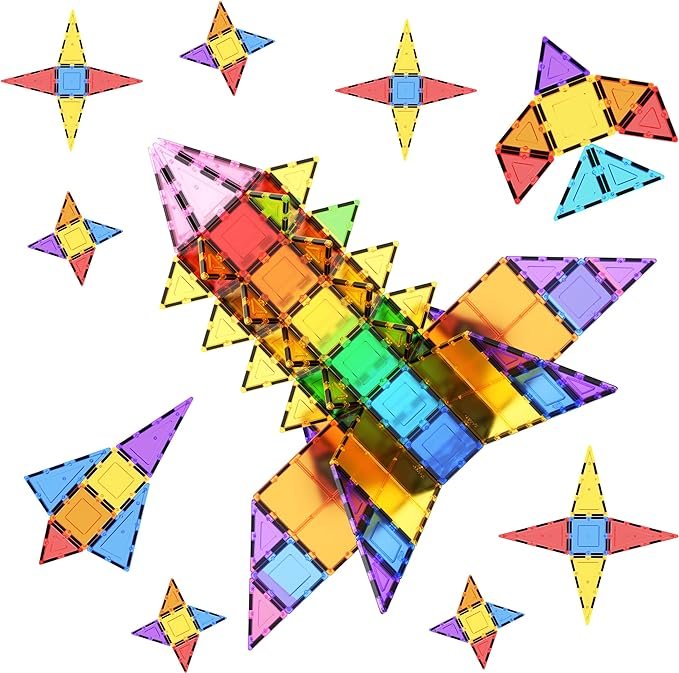What is Play Therapy?
Play therapy encourages imagination, self-expression, and exploration through specially selected toys and materials. It offers a transformative pathway for children to explore their emotions, navigate challenges, and find healing through the power of play. Play is natural for children and it allows them to comfortably engage in the therapeutic setting.
Play therapy is a gentle, yet profoundly effective process that builds therapeutic rapport while nurturing overall emotional well-being.
Benefits of Play Therapy
Play is a fundamental aspect of child development and nurtures creativity, social skills, and cognitive functioning. Through play, kids can explore their interests, experiment with ideas, and learn to navigate the complexities of the world around them. Productive play is a vital component of a holistic approach to learning and development. In session, the play therapist utilizes a thoughtful, tailored process that intermittently guides and follows the child to gain insight into their world and to provide targeted support.
Play therapy promotes the following:
Trust: Young children often connect and communicate best through play, and curated toys and activities allow the therapist to cultivate a therapeutic alliance with the child.
Emotional Regulation: Play offers a safe way for kids to explore and express emotions without social consequences. This allows children to work through difficulties and develop the self-efficacy required to soothe themselves in times of distress.
Cognitive Development: Play provides opportunities for exploration, experimentation, and problem-solving. This type of play promotes the development of spatial awareness, creative reasoning, and abstract thinking.
Self-Expression: Kids often have difficulty verbalizing their thoughts and feelings, but with play they can explore their emotions and experiences through a safe and familiar medium.
Behavioral Rehearsal: Play allows kids to “practice” and “experience” different social, emotional, or environmental situations without repercussions. Behavioral rehearsal prepares them for future experiences and builds resilience. Preparedness in kids (and adults!) contributes to overall well-being and can significantly reduce dysregulated or antisocial feelings and behaviors.
Experience Processing: For children who have experienced trauma or adverse experiences, play therapy can provide a safe space for them to process and make sense of their circumstances.
What is a Play Therapist?
While therapeutic play can be used by a variety professionals, a registered play therapist holds an active mental health license and maintains credentialing standards set by the Association for Play Therapy (APT), including additional specialized graduate coursework, supervised play therapy experience, and applicable continuing education.
Is Play Therapy right for my child?
Play therapy can be used to remediate behavior, treat symptoms, and support development. It is a versatile therapeutic approach that has been shown to be especially effective for kids experiencing symptoms related to:
Anxiety
Dysregulated Emotions
Transitions
Trauma
Social Concerns
Young Children
Best Play Therapy Toys and Materials
Toddler Scavenger Hunt Cards
These cards inspire delightful quests and offer a myriad of benefits that go beyond just play—kids develop essential motor skills, enhance their cognitive abilities, and foster a connection with their environment.
Check out our free printable nature scavenger hunt checklist too!
Chemistry Kit
Through scientific play, children can experiment with cause and effect and learn to better understand the world around them.
We love to use the volcano to talk about feeling eruptions!
“Baking Soda + Vinegar” is kind of like “Tired + Frustrated”—they both lead to an eruption! What other feelings blend together to make something new?
Wooden Birthday Cake
Blowing out candles can be a playful and engaging way for children to practice deep, intentional breaths that they can employ when feeling dysregulated or upset. Take mindfulness practice one step further and encourage kids to think of something they are grateful for, or a “wish come true,” as they blow out each candle.
Medical Kit
A play medical kit provides an opportunity for children to explore and express their feelings surrounding health, illness, and care. This toy allows children to play out scenarios related to physical and emotional well-being, and offers therapists (and parents) valuable insights into their concerns and coping mechanisms.
This form of symbolic play not only helps demystify medical experiences, but also encourages the development of empathy, communication skills, and a sense of control.
Magnetic Tiles
These colorful tiles offer endless possibilities for creative construction and they empower kids to experiment, problem-solve, and confidently bring their visions to life. This kind of play fosters positive cognitive development and encourages self-efficacy.
Use color coded feeling prompts for integrated dialogue: “When we grab a yellow tile, let’s talk about a time we felt happy.”
Puzzles
Puzzles help kids develop problem-solving skills, patience, and persistence, which can translate into coping strategies that can be utilized outside of the therapeutic setting. Puzzles also provide opportunities for therapists to observe a child's cognitive abilities, communication style, and emotional responses.
Dollhouse
Dollhouses provide a symbolic space where children can examine their thoughts, emotions, and experiences. Through the manipulation of figures and settings, children can externalize and make sense of their internal world. This type of play facilitates communication when verbal expression is challenging or limited.
A free printable version of this information is available in our Infographics Tab!
CLICK HERE to explore our pediatric mental and behavioral health infographics.
Explore our full list of recommended toys and materials:
CLICK HERE to learn more about productive play.
REFERENCES
Play Therapy Credentials - Association for Play Therapy. (n.d.). https://www.a4pt.org/page/CredentialsInfo
Play therapy for a child in the hospital. (n.d.). https://www.nationwidechildrens.org/conditions/health-library/play-therapy-for-a-child-in-the-hospital
Κουκουρίκος, Κ., Tsaloglidou, A., Tzeha, L., Iliadis, C., Frantzana, A., Katsimbeli, A., & Kourkouta, L. (2021). An overview of play therapy. Materia Socio-medica, 33(4), 293. https://doi.org/10.5455/msm.2021.33.293-297
















